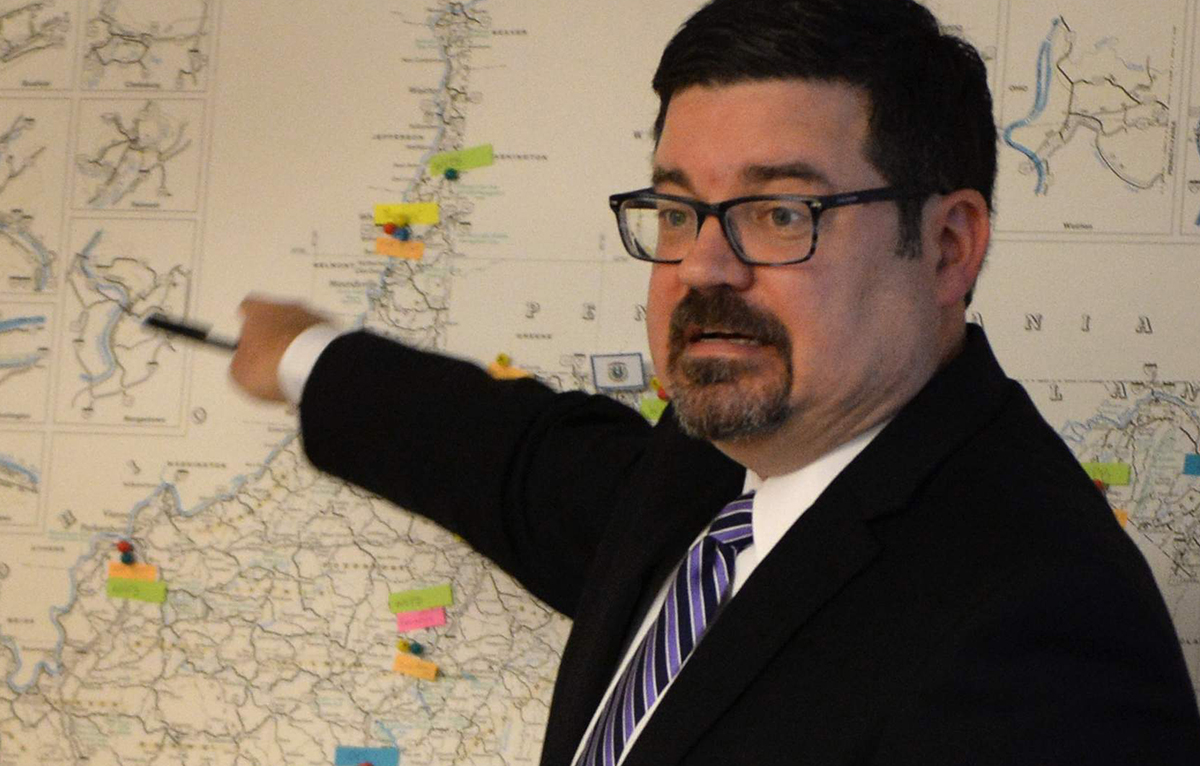By PHIL KABLER
Charleston Gazette-Mail
CHARLESTON, W.Va. — The leader of West Virginia Public Broadcasting said he will ask legislators, if they cannot continue to fully fund WVPB, to at least allow a one-year study period to set funding priorities before making cuts and to permit a two-year phase-down of staff.

(Photo by Kenny Kemp)
Without that transition period, Executive Director Scott Finn said Wednesday, there is a real possibility West Virginia’s public television and radio stations will have to shut down on July 1 if state funding is eliminated.
“It would be extremely difficult to sustain operations at that point,” Finn told the Educational Broadcasting Authority at a meeting Wednesday.
Gov. Jim Justice’s proposed 2017-18 state budget would eliminate state funding for WVPB, with the $4.6 million appropriation accounting for about 45 percent of its total operating budget.
Finn said the loss of state funding would cause a loss of matching funds from federal and private sources that would double the impact of the state budget cut, while reductions in staff would make it difficult to pursue new grants and underwriting opportunities.
Shutting down operations would have other ramifications, Finn said.
The Federal Communications Commission can fine stations up to $10,000 a day for each day they are off the air, Finn said. While the FCC rarely imposes the maximum penalty, fines of $20,000 to $30,000 are not uncommon for stations that cease broadcasting, he said. Also, after one year off the air, the stations would permanently forfeit their FCC broadcast licenses.

“These are issues we have to deal with,” EBA Chairman Bill File said. “We have to be proactive to be sure West Virginia Public Broadcasting continues.”
“I think we need to get out of denial. I think we need to accept that we have to make changes,” Finn said.
EBA members talked, via speakerphone, with the general manager and president of New Hampshire Public Television, which went through a similar elimination of state funding in 2011.
That network, which was operated through the state university system, lost its state funding of $2.7 million, or about 31 percent of its total budget, when what General Manager Peter Frid called a “very conservative legislature” cut funding for state universities in half in 2011.
With just four months to change from a university-supported to a community-supported network, NHPB undertook a complete analysis of its operations, Frid said.
Frid said the network laid off 20 employees — 40 percent of the total staff — and put all locally produced programming on hiatus, pending obtaining underwriting grants to fully fund production costs for any of the programs.
Some programs, including a long-running high school quiz show, came back with corporate funding. Much of the network’s public affairs programming, including the weekly broadcast “New Hampshire Outlook,” did not return.
“Today, it’s still a challenge,” Frid said. “It’s not easy not having that consistent support from the state.”
“It was a difficult thing, and much was lost in the process,” Finn said of the New Hampshire experience. “Public affairs programming, transparency in government, that’s what you lose.”
Also Thursday, the EBA discussed shutting down TV translators — towers used to retransmit broadcasts to outlying areas — as a way to cut costs.
Shutting down translators — or opting to not repair them when they fail — would cut off some 25,000 residents who get public television over-the-air with antennas, Finn said.
It would not affect viewers who get WVPB via cable or satellite TV.
“It always hurts to talk about pulling back service and serving fewer people,” Finn said, citing in particular the translator in Welch that serves some of the state’s poorest residents in McDowell County.
See more from the Charleston Gazette-Mail






